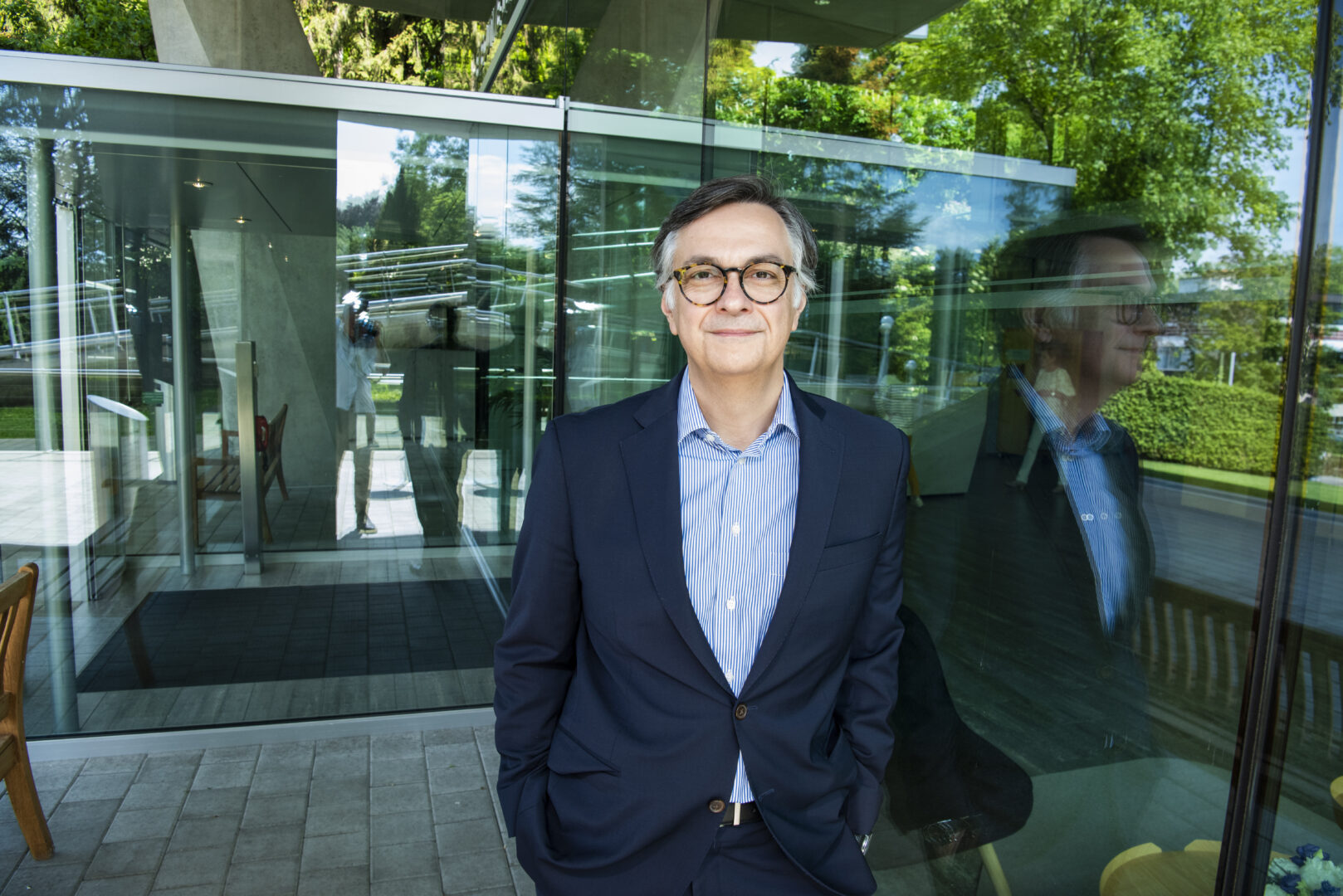
Edilson Camara loves to listen to progressive rock. A genre of music that features multiple changes of time signature, instruments, tone and key, all within the same song, is complex and keeps you guessing. Perhaps this is good preparation for executive life. One of his favorite quotes is from Neil Peart, drummer with the band Rush: “We dance on the strings of powers we can’t perceive.”
“Attentive listening is something [I value],” he says. “Perhaps my musical preference has helped me in this profession and also in this role, trying to understand what is going on around the world.”
His own career has featured changes of continent, sector and role; from a young business analyst role at Exxon in Brazil, to the MBA in Lausanne, where he was headhunted by the prestigious leadership advisory firm Egon Zehnder. After two decades, rising from consultant to manager, he became global chief executive in 2018.
Any business relies on trust, and a strong culture. For Camara, these are core, strategic issues, not soft ones. The company spent millions of dollars on a week-long gathering of professional Egon Zehnder staff in Berlin in mid-2022. “Other than the critical governance element of a Partners’ Meeting in a partnership like ours, there’s no business objective other than being together.”
He cites the philosopher Francis Fukuyama, author of The End of History, who describes trust as the currency of social development. “Rituals like this [gathering in Berlin], that we do regularly, and many others at regional level, aim at maintaining the spirit and balance between local and global and the sense of affiliation…these are basically investments in the currency of trust.”
This is especially important given Egon Zehnder’s egalitarian employment policy, in which pay is not linked to billing hours, but is uniform and global, linked to tenure. Such a system relies on a high caliber of recruit and high levels of trust. Growth can dilute trust, so you have to over-invest in trust to keep the system balanced, he says.
He credits his MBA at IMD, where he graduated in 1998, as “one of the best years of my life”, forming close bonds with his fellow alumni – the WhatsApp group from the class of ‘98 is one of his most active to this day. He was particularly influenced by the close integration of teaching of technical subjects alongside organizational behavior and personal leadership ability.
“If you have passion for the business, you step up to management out of a sense of duty. Then you realize you can have an impact.”
He recalls professors Jim Ellert, Dominique Turpin and Leif Sjöblom. “Two of them were fantastic professors of finance and accounting; they came with a ton of authority saying that you need this foundation, but what is going to make the difference for you professionally is the culture and the people you work with.”
Also key to his development as a manager was the teaching at IMD on the importance of acknowledging people’s contributions, and working through the diversity of the team – especially important when leading a global, diverse and network-driven business.
For more than half his time as CEO of Egon Zehnder, he has had to grapple with the COVID-19 pandemic and lockdowns, which have had a profound effect on management consultancy and executive search, sharply reducing the number and frequency of in-person meetings and curbing economic activity globally.
“It was probably the toughest moment in my career … But there was a decision with the full support of the board at that point in time that I would not be guided by stuff that I don’t know. I will just try to proceed, based on the few things that we do know.”
The firm made a commitment to employees, prepared to sacrifice partners’ returns to prevent making redundancies, and sought to position itself for an economic rebound. This course of action had risks, because during the strictest phase of lockdowns, in April–May 2020, there was no way of knowing how long the downturn would persist. As it turned out, business levels picked up later in 2020, and for the whole year Egon Zehnder’s business only fell 4.5%, the smallest of its sector.
The bond he sees between himself, the firm that he leads and IMD is much more than paying tribute to the education he received. He sees Egon Zehnder’s and IMD’s ethos and role as being closely linked, with much potential for collaboration. Both are global and influential firms, yet relatively small, both address the most important challenges in business. “Both organizations can be a force for good in the world. Leadership for a better world is something that both IMD and Egon Zehnder stand for.”


